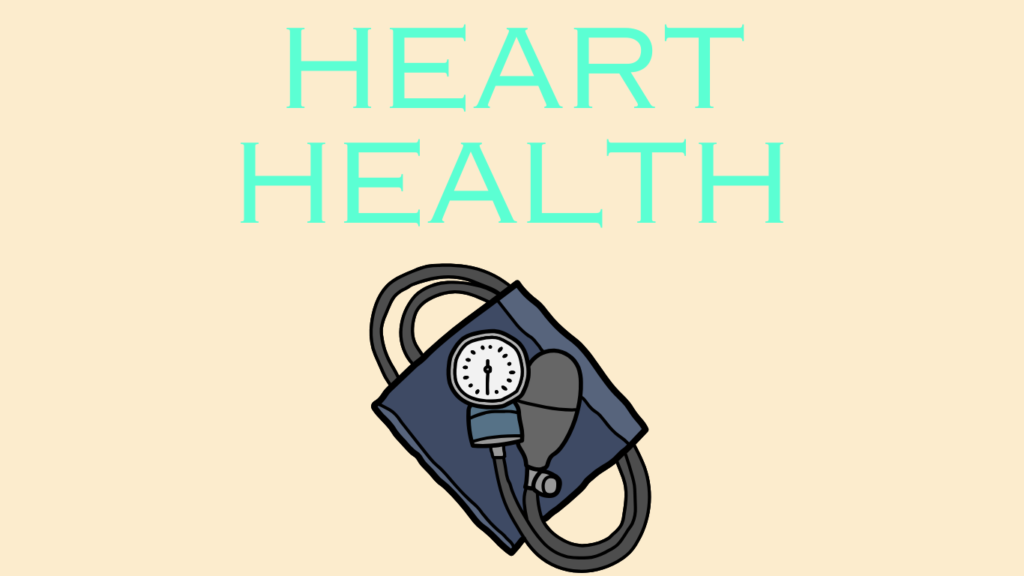Meditation and Lowering Blood Pressure: A Path to Better Heart Health

In today’s fast-paced world, stress has become a near-constant companion. Its impact is far-reaching, often manifesting as elevated blood pressure, a condition that affects millions globally. While medical interventions are effective, an increasing number of people are turning to holistic practices like meditation for blood pressure control and managing hypertension naturally.
Understanding Blood Pressure and Its Challenges
Blood pressure refers to the force of blood pushing against the walls of arteries. When this pressure remains consistently high, it can strain the heart and lead to conditions like heart disease, stroke, and kidney problems.
Lifestyle choices, stress, and genetics often contribute to hypertension (high blood pressure). Traditional treatments typically include medications, dietary changes, and exercise. However, stress management plays a critical role in keeping blood pressure within healthy ranges.
This is where meditation becomes a valuable tool.
Table of Contents
How does Meditation Help Regulate Blood Pressure?
Meditation is a practice that involves focusing the mind to achieve a state of relaxation and heightened awareness. Its benefits for mental health are well-known, but research also highlights its ability to positively impact physical health, particularly blood pressure.
- Stress Reduction: Chronic stress triggers the release of hormones like cortisol and adrenaline, which increase heart rate and constrict blood vessels, leading to higher blood pressure. Meditation helps lower stress levels by calming the mind and body, reducing the physiological responses that drive hypertension.
- Improved Heart Health: Meditation techniques such as mindfulness and transcendental meditation have been shown to reduce resting heart rate and improve overall cardiovascular function. These changes decrease the workload on the heart, helping to maintain stable blood pressure levels.
- Enhanced Autonomic Nervous System Function: The autonomic nervous system regulates involuntary bodily functions like heart rate and blood pressure. Meditation balances this system by stimulating the parasympathetic (“rest-and-digest”) response while reducing the overactive sympathetic (“fight-or-flight”) response.
Scientific Evidence Supporting Meditation for Blood Pressure
Numerous studies support the effectiveness of meditation in managing hypertension. For instance:
- A 2020 study published in the Journal of Hypertension found that individuals who practiced mindfulness meditation experienced significant reductions in both systolic and diastolic blood pressure.
- The American Heart Association acknowledges meditation as a complementary approach to reducing high blood pressure, emphasizing its role in stress reduction and overall heart health.
Getting Started with Meditation
For beginners, meditation might feel intimidating, but it’s easier than it seems. Here’s how to incorporate it into your daily routine:
- Choose a Quiet Space: Find a calm environment free of distractions.
- Choose a Meditation Technique: Select a method that resonates with you, whether it’s mindfulness, deep breathing, or guided meditation.
- Set a Time Limit:Start with 5-10 minutes a day and gradually increase as you become more comfortable.
- Focus on Your Breath:Sit in a comfortable position and concentrate on your breathing. Deep, slow breaths can promote relaxation.
- Practice Consistently: Regular practice is key to reaping the benefits of meditation. Aim for daily sessions, even if they’re short.
- Explore Guided Meditations: Apps and online resources offer guided sessions tailored for relaxation and stress management, making it easier to stay on track.
- Be Patient and Consistent: Remember that meditation is a journey. Consistency is key to experiencing its benefits.
Meditation is a powerful tool for reducing stress and anxiety, improving sleep quality, and fostering a sense of relaxation and calmness. With regular practice,
Understanding High Blood Pressure and Its Impact on Heart Health
High blood pressure, or hypertension, is a pervasive health issue affecting millions globally. It occurs when the force of blood against the walls of the arteries is consistently too high, leading to damage over time.
This condition can be influenced by a mix of genetic, lifestyle, and environmental factors, such as a diet high in salt and sugar, lack of physical activity, stress, and certain medical conditions. The impact of high blood pressure on heart health is profound.
Elevated blood pressure forces the heart to work harder, which can lead to fatigue and damage to the heart muscle, increasing the risk of heart failure. Additionally, high blood pressure can cause the blood vessels to narrow and harden, reducing blood flow to vital organs like the heart and brain.
If left unchecked, this can result in severe health complications, including heart attacks, strokes, and kidney disease. Understanding and managing high blood pressure is crucial for maintaining heart health and overall well-being.
The Science Behind Meditation and Blood Pressure Reduction
Research has shown that meditation can be a powerful tool for lowering blood pressure and reducing the risk of heart disease. The science behind this lies in meditation’s ability to reduce stress and anxiety, improve sleep quality, and foster a sense of relaxation and calmness.
When we experience stress, our body’s “fight or flight” response is activated, causing an increase in heart rate and blood pressure. Meditation helps counteract this response by stimulating the parasympathetic nervous system, which promotes relaxation and reduces stress.
Regular meditation practice has also been shown to boost the production of nitric oxide, a molecule that helps to widen blood vessels and improve blood flow. By incorporating meditation into your routine, you can help lower blood pressure and support heart health.
How Meditation Affects the Body
Meditation can have a profound impact on the body, influencing everything from heart rate and blood pressure to immune function and digestion. When we meditate, our body undergoes several physiological changes, including:
- Reduced Heart Rate and Blood Pressure: Meditation helps to slow the heart rate and lower blood pressure, reducing the strain on the heart and blood vessels.
- Slowed Breathing Rate: Focusing on deep, slow breaths during meditation can promote relaxation and reduce stress.
- Increased Production of Nitric Oxide: This molecule helps to widen blood vessels, improving blood flow and reducing blood pressure.
- Improved Immune Function: Regular meditation can enhance the immune system, helping the body to fight off illnesses.
- Reduced Inflammation: Meditation has been shown to lower levels of inflammation in the body, which is linked to various chronic diseases.
- Improved Digestion and Gut Health: By reducing stress, meditation can improve digestive health and alleviate issues like irritable bowel syndrome (IBS).
These changes can lead to a range of benefits, from reducing stress and anxiety to improving sleep quality and fostering a sense of calmness. Regular meditation practice can also help lower the risk of chronic diseases, such as heart disease, diabetes, and certain types of cancer.
Effective Meditation Techniques for Lower Blood Pressure
There are several meditation techniques that can be particularly effective for lowering blood pressure. Here are a few to consider:
- Transcendental Meditation: This technique involves the use of a mantra to help the mind focus and quiet the body. It has been shown to reduce stress and lower blood pressure.
- Mindfulness Meditation: This practice involves paying attention to the present moment without judgment or distraction. It can help reduce stress and promote relaxation.
- Deep Breathing Exercises: Focusing on slow, deep breaths can calm the body and mind, helping to lower blood pressure.
- Progressive Muscle Relaxation: This technique involves tensing and relaxing different muscle groups to release physical tension and promote relaxation.
- Guided Meditation: Listening to a guided audio recording can lead you through a meditation practice, making it easier to focus and relax.
Incorporating these techniques into your daily routine can help you manage stress and lower blood pressure, supporting overall heart health.
Final Thoughts
Meditation is not a cure-all but a powerful tool in the fight against high blood pressure. When combined with a healthy lifestyle, it can improve heart health, reduce stress, and enhance overall well-being. Whether you’re looking to prevent hypertension or manage it, taking a few moments each day to meditate could be the simple yet effective change your body needs.
Remember, it’s always a good idea to consult your healthcare provider before starting any new health routine, especially if you have existing medical conditions.
Start small, breathe deeply, and watch how the power of meditation transforms your heart and mind.

